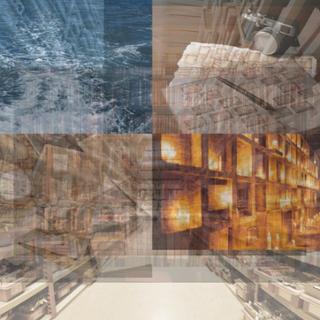About the Theme
Sara Ahmed reminds us that etymologically, inheritance is what sticks to us, and Jacques Derrida underscores how it always involves decision: inheritance is a process
This question may focus on philosophical and speculative questions about traditions, canons, and curricula. It might include considerations of both endurance and disruption in a wide variety of ways. Asking this question might entail thinking in detail about the complexities of inheritance in political, psychological, legal, religious, or social terms.
The question invites attention to the afterlives of slavery (Saidiya Hartman), the ongoing dispossessions of settler coloniality (which many settlers barely register consciously), and tensions among religious traditions and the geopolitically adjacent societies organized (however loosely or tightly) around them. It moves toward the economics and legality of inheritance, broadly construed.
It may focus on “origins” or foundation (which may mean explicitly rejecting logics of the origin or foundations), or ask about what it is that we “owe” ancestors, how we can ethically live toward visions of sociality that are passed down.
It could include attention to monuments, archives, placenames, prophets, scriptures, initiators of movements or schools, or a focus on libraries, archives, and museums as orderings of knowledge, often complicit with interests of states and dominant social forces.
Catalog Courses
ANTH101 Introduction to Cultural Anthropology (Margaret Dorsey, Olubukola Olayiwola, Jenniffer Nourse) [ANTHROPOLOGY]
ARCH220 Introduction to Archaeology (Elizabeth Baughan) [ARCHAEOLOGY]
ARTH209 Medieval African Art (Agnieszka Szymańska) [ART HISTORY]
ARTH220 Public Art: From Monuments to the Internet (Dr. Megan Driscoll) [ART HISTORY]
ARTH229 Women Artists, Agents and Influencers in Early Modern Europe (Elena Calvillo) [ART HISTORY]
CLAS205 Mythology: Ancient Epic (Dean Simpson) [CLASSICAL STUDIES]
CLAS329 The Ancient World in Cinema (Erika Damer) [CLASSICAL STUDIES]
CLSC320 Cultural Property: Archaeology, Ethics, and Law (Elizabeth Baughan) [CLASSICAL STUDIES]
EDUC398 Children's Literature (Tammy Milby) [EDUCATION]
ENGL299 Literature and Comedy (Kevin Pelletier) [ENGLISH]
ENVR322 Global Climate Change (David Kitchen) [ENVIRONMENTAL STUDIES]
FMST400 Global Indigenous Film (Monika Siebert) [FILM STUDIES]
FYS100 Devil in the Details: Microhistory & Historical Narrative (Douglas Winiarski) [FYS]
FYS100 New Media, Cyberpunk, and Digital Art (Nick Dease) [FYS]
FYS100 Writing Through the Transition (Elisabeth Gruner) [ENGLISH]
GEOG 210 Planet Earth - People and Place (David Salisbury) [GEOGRAPHY]
GEOG 250 Planet Earth: Wind, Water, Fire (Todd Lookingbill) [GEOGRAPHY]
GSS 200 Intro: Gender & Sexuality Studies (Nathan Snaza) [GENDER & SEXUALITY STUDIES]
GSS 279 ST: Queer Ecologies (Miriam Gonzales) [GENDER & SEXUALITY STUDIES]
GSS 280 Gender and Work (Melissa Ooten) [GENDER & SEXUALITY STUDIES]
GSS 379 ST: Inheriting Gender & Sexuality (Nathan Snaza) [GENDER & SEXUALITY STUDIES]
HIST 199 American Foreign Relations to 1913 (Graeme Mack) [HISTORY]
HIST 199 Maps & Resistance in Latin America (Juan Ardila Falla) [HISTORY]
HIST 199 Presidents & Precedents: A History of the American Presidency (Graeme Mack) [HISTORY]
HIST 204 The Civil War & Reconstructions (James J. Broomall) [HISTORY]
HIST 213 Lawrence v. Texas (Pippa Holloway) [HISTORY]
HIST 216 American Culture, 1945-2000 (Nicole Sackley) [HISTORY]
HIST 222 Hellenistic Greece/Republic of Rome (Walter Stevenson) [HISTORY]
HIST 232 British Business History (Chris Bischof) [HISTORY]
HIST 248 Europe in Crisis, 1881-1949 (David Brandenberger) [HISTORY]
HIST 260 Colonial Latin America (Juan Ardila Falla) [HISTORY]
HIST 282 Africa in the 20th Century (L. Carol Summers) [HISTORY]
HIST 399 ST: Civil War Memory (James J. Broomall) [HISTORY]
HIST 399 ST: Fields, Factories, Robots (Geoffrey Traugh) [HISTORY]
HIST 400 ST: Social Reformers in the Modern British World (Chris Bischof) [HISTORY]
HS 100 Health Systems & Policy (Rick Mayes, Margaret Tait, Judy Gutierrez) [HEALTH STUDIES]
HS 101 Global Health (James Jacobsen) [HEALTH STUDIES]
HS 303 Health Ethics (Ray Roberts) [HEALTH STUDIES]
HS 331 Planetary Health (Jeremy Hoffman) [HEALTH STUDIES]
HS 397 Health Education Theory & Methods (Heather Sadowski) [HEALTH STUDIES]
JOUR 100 News Media and Society (Betsy Mullen) [JOURNALISM]
LAIS 321 Literary Spain Lo que la superficie esconde (Ángel Otero-Blanco) [LAIS]
LAIS 397 THE BORDER / LA FRONTERA (Amaral-Rodriguezy Fernández) [LAIS]
LAIS 463 Narraciones modernas de España (Ángel Otero-Blanco) [LAIS]
LDST101 Leadership and the Humanities (Peter Kaufman, Lauren Henley, David Wilkins, Javier Hidalgo, Julian Hayter) [LEADERSHIP]
LDST210 Justice and Civil Society (Lauren Henley, Thad Williamson, Ekrem Mus) [LEADERSHIP]
LDST301 Native Peoples and the Supreme Court (David Wilkins) [LEADERSHIP]
LDST305 Law, Native Sovereignty, and Treaty Rights (David Wilkins) [LEADERSHIP]
LDST306 Sex, leadership, and the evolution of human societies (Chris von Rueden) [LEADERSHIP]
LING 203 Introductory Linguistics (Thomas Bonfiglio) [LINGUISTICS]
LLC281 Literature and Medicine (Yvonne Howell) [LLC]
MUS226 Music, Media, and Popular Culture (Joanna Love) [MUSIC]
PLSC250 Introduction to International Relations (Monti Datta, Ana Petrova) [POLITICAL SCIENCE]
PLSC311 Classical Political Thought (Kevin Cherry) [POLITICAL SCIENCE]
PLSC312 Modern Political Theory (Claudio Lopez-Guerra) [POLITICAL SCIENCE]
PLSC333 Civil Rights and Civil Liberties (Stephen Simon, Chris Miller) [POLITICAL SCIENCE]
PLSC339 Jurisprudence in Contemporary American Politics (Stephen Simon) [POLITICAL SCIENCE]
PLSC349 Politics of Latin America and the Caribbean (Jennifer Pribble) [POLITICAL SCIENCE]
PLSC351 Globalization (Ana Petrova) [POLITICAL SCIENCE]
PLSC379 Human Trafficking (Monti Datta) [POLITICAL SCIENCE]
PLSC379 Politics of Central Eastern Europe (Aleksandra Sznajder Lee) [POLITICAL SCIENCE]
PLSC444 Europe Today (Aleksandra Sznajder Lee) [POLITICAL SCIENCE]
PSYC313 Social Psychology (Adam Stanaland) [PSYCHOLOGY]
RELG220 Magic & Religion in the Early Christian World (Stephanie Cobb) [RELIGIOUS STUDIES]
RELG331 The Hebrew Prophets (Rhiannon Graybill) [RELIGIOUS STUDIES]



